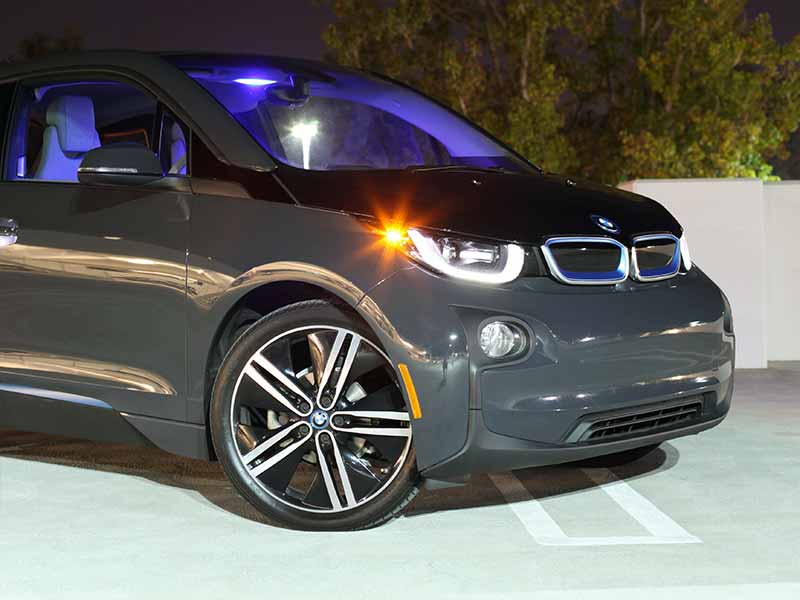As electric vehicles (EVs) become more prevalent, a common query among EV owners and enthusiasts is the cost and efficiency of EV-specific tires. Understanding the nuances of these tires is essential for those looking to optimize their EV’s performance and longevity.
Are EV Tires More Expensive?
EV tires tend to be more expensive than regular tires due to their specialized design for handling the unique demands of electric vehicles, such as increased weight and instant torque.
In this article, we explore the distinct characteristics of EV tires, their lifespan, cost analysis, comparison with regular tires, and whether they are worth the investment.
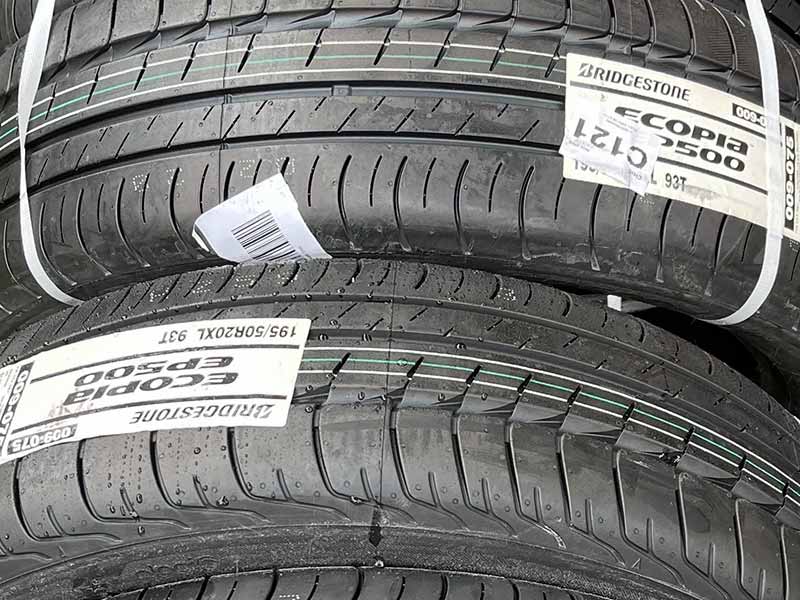
Understanding EV Tires
Electric vehicles (EVs) are reshaping the automotive landscape, and with them come new considerations for components like tires. Let’s dive into what makes EV tires distinct and why these differences matter.
The Unique Demands of EV Tires
- Weight Considerations: EVs are generally heavier than traditional cars due to their battery packs. This means their tires need to support more weight, affecting their design and material.
- Torque Response: EVs deliver instant torque. Tires for these vehicles are designed to handle this rapid acceleration without excessive wear.
- Noise Reduction: With quieter engines, road noise becomes more noticeable. EV tires often feature noise-dampening technologies to provide a quieter ride.
Design and Material Considerations
- Reinforced Structures: To handle the extra weight and torque, EV tires typically have stronger sidewalls and more robust internal structures.
- Advanced Rubber Compounds: Manufacturers use special rubber compounds in EV tires to balance durability, efficiency, and grip.
- Tread Patterns: The tread on EV tires is often designed to minimize road noise and optimize range by reducing rolling resistance.
Why This Matters
- Safety and Performance: The right tire ensures that an EV operates safely, handles well, and maximizes its performance capabilities.
- Efficiency and Range: Properly designed tires can positively impact an EV’s efficiency, contributing to a longer driving range on a single charge.

Lifespan of EV Tires
When it comes to the lifespan of EV tires compared to regular tires, there are several factors to consider. Let’s break it down:
Increased Wear Due to Weight and Torque
- Heavier Load: EVs are generally heavier than traditional cars, primarily due to their battery packs. This added weight places extra pressure on the tires, potentially leading to quicker wear.
- Instant Torque: Electric motors deliver more torque than gas or diesel engines, and this delivery is instantaneous. This immediate and heavy pressure on the tires can cause faster wear and tear, especially if the tires are not specifically designed for EVs.
Lifespan Estimates
- Despite these challenges, high-quality EV-specific tires can last between 30,000 to 50,000 miles, which is on par with the lifespan of many regular tires. The actual lifespan will depend on driving habits and tire maintenance.
Maintenance Tips to Extend Tire Life
- Regular tire rotation is a key step in extending tire life, ideally every six months.
- Proper tire maintenance and choosing the right tires for your EV can help ensure they last as long as possible.
Overall Maintenance of EVs
- While EV tires may not last as long, EVs generally require less maintenance than internal combustion engine (ICE) vehicles. They have fewer moving parts and therefore fewer elements that need regular servicing.
- Regenerative braking in EVs also contributes to longer-lasting brake components.
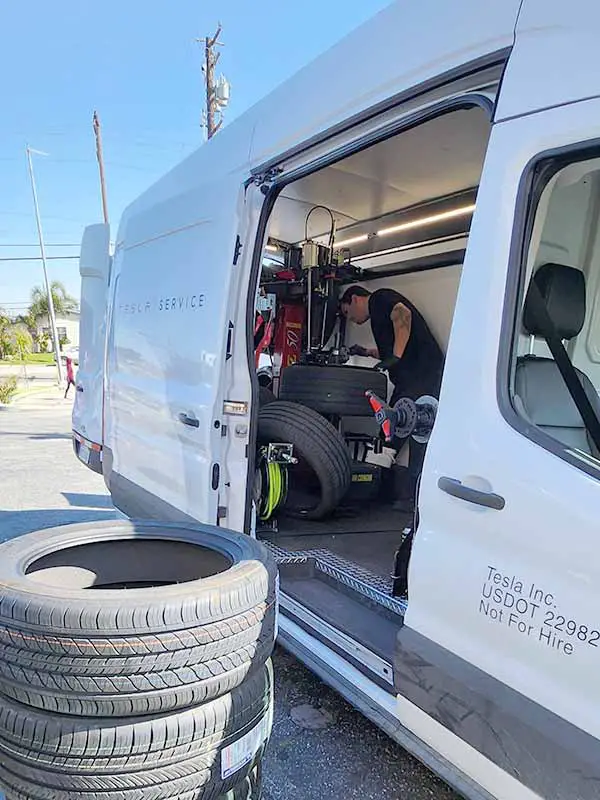
Cost Analysis of EV Tires
When it comes to cost, it’s important to understand how the unique features of EV tires impact their price compared to regular tires. Here’s what you need to know:
Price Comparison
- Initial Cost: Generally, EV tires are more expensive than regular tires. This is due to the specialized design and materials needed to accommodate the unique demands of electric vehicles, such as weight support, efficiency, and torque handling.
- Factors Affecting Cost: The price of EV tires is influenced by their reinforced construction, advanced rubber compounds, and specialized tread designs.
Long-Term Expenses
- Efficiency and Range: EV tires, designed for low rolling resistance, can improve the vehicle’s range and efficiency. This could lead to energy savings over time.
- Wear and Replacement Frequency: While EV tires may wear out faster due to the vehicle’s weight and torque, investing in quality tires can minimize the frequency of replacements.
Balancing Cost with Benefits
- Performance and Safety: EV tires provide better handling, stability, and safety for electric vehicles. This should be factored into the cost analysis.
- Environmental Impact: The efficiency benefits of EV tires also contribute to the overall environmental goals of electric vehicle ownership.
Cost vs Value
- Upfront vs Long-Term Costs: It’s crucial to weigh the initial higher cost of EV tires against the potential long-term savings and benefits they offer.
- Investment in Your Vehicle: Purchasing EV-specific tires can be seen as an investment in the optimal performance and longevity of your electric vehicle.
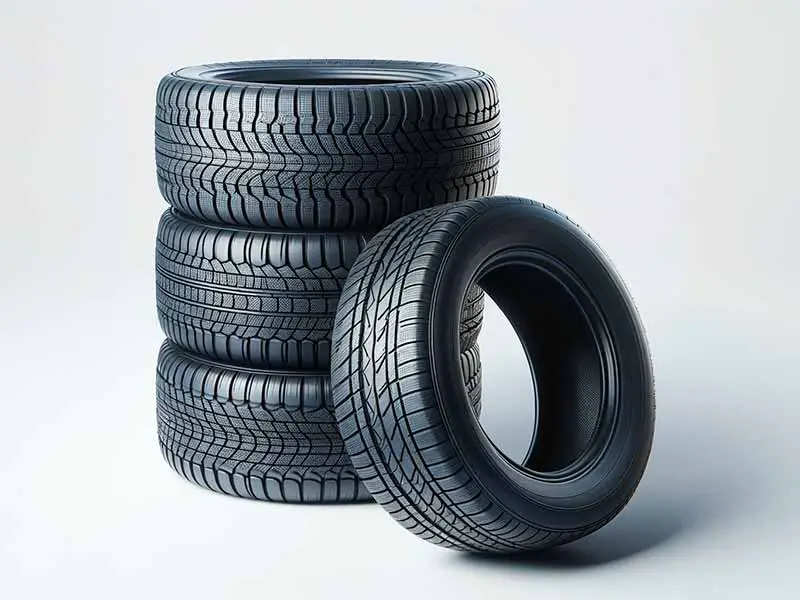
EV Tires vs Regular Tires
In this section, we’ll compare EV tires with regular tires, focusing on their performance, durability, efficiency, and overall value.
Performance and Durability
- Handling and Safety: EV tires are specifically designed to support the heavier weight and instant torque of electric vehicles. This results in better handling, stability, and overall safety.
- Wear Patterns: Due to the increased weight and torque, EV tires might wear out differently than regular tires. However, they are designed to distribute this weight more evenly, potentially reducing uneven wear.
Efficiency
- Rolling Resistance: A key feature of EV tires is their low rolling resistance, which is vital for maximizing the vehicle’s efficiency and range. Regular tires typically have higher rolling resistance, which could reduce an EV’s range.
- Energy Savings: By using tires with lower rolling resistance, EVs can conserve more energy, translating into savings over time.
Noise Reduction
- Quieter Ride: EV tires often include noise-reducing features to provide a quieter ride, taking advantage of the electric vehicle’s inherently quiet nature.
- Regular Tires and Noise: Regular tires might not offer the same level of noise reduction, potentially making the EV louder during operation.
Cost-Effectiveness
- Initial Cost vs Long-Term Benefits: While EV tires may have a higher initial cost, they offer benefits in efficiency, safety, and potentially longer wear life, which can be cost-effective in the long run.
- Regular Tires on EVs: Using regular tires on an EV might save money upfront but could lead to higher overall costs due to reduced efficiency and more frequent replacements.
Maintenance Tips to Extend EV Tire Life
Proper maintenance of EV tires is crucial for extending their lifespan and improving cost-efficiency. Here are some practical tips to help you maintain your EV tires effectively:
Regular Tire Checks
- Inspect for Wear and Tear: Regularly examine your tires for any signs of uneven wear, cuts, or punctures. Early detection of these issues can prevent more significant problems down the road.
- Check Tread Depth: Ensure that the tread depth is within the safe limits. Worn-out treads can reduce the tire’s grip and handling, especially in wet conditions.
Proper Tire Inflation
- Regular Pressure Checks: Check your tire pressure at least once a month and before long trips. Incorrect tire pressure can lead to increased wear and reduced efficiency.
- Follow Manufacturer’s Recommendations: Always inflate your tires according to the pressure recommended by the vehicle manufacturer. This information is usually found in the owner’s manual or on a sticker in the driver’s door jamb.
Tire Rotation and Alignment
- Rotate Tires Regularly: Tire rotation should be done approximately every 6,000 to 8,000 miles. This helps in even wear distribution, extending the tire’s life.
- Wheel Alignment: Have your wheel alignment checked periodically, especially if you notice your vehicle pulling to one side or if you’ve hit a pothole or curb. Proper alignment ensures even tire wear and better handling.
Balancing Tires
- Balance Your Tires: Ensure your tires are balanced, as unbalanced tires can cause vibration, uneven wear, and additional strain on your EV.
Driving Habits
- Gentle Acceleration: Avoid rapid starts and stops. The instant torque of EVs can cause faster wear if not managed with smooth acceleration and braking.
- Avoid Overloading: Don’t exceed your vehicle’s maximum load capacity, as extra weight can put additional strain on your tires.
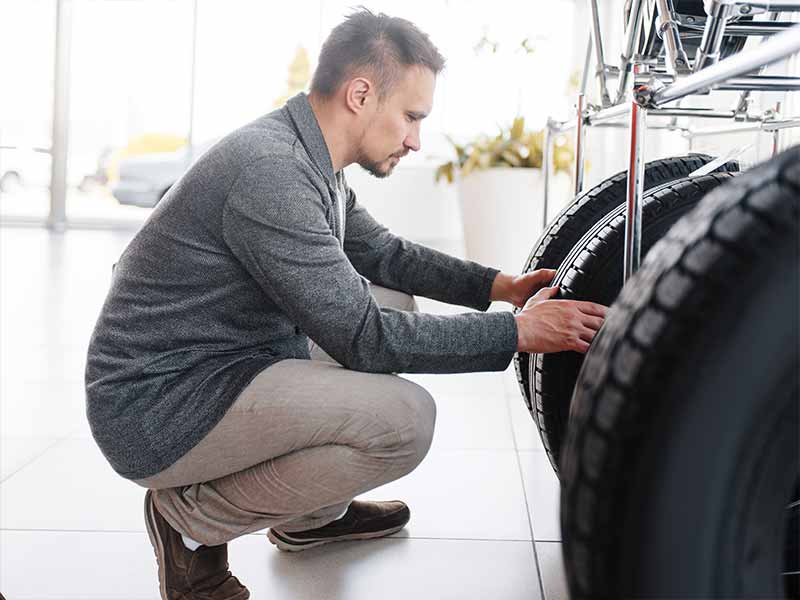
Are EV Tires Worth It?
This crucial question boils down to assessing whether the higher cost of EV tires is justified by their benefits. Let’s examine the key factors that make EV tires a potentially valuable investment for electric vehicle owners.
Performance and Safety
- Tailored Design: EV tires are engineered to accommodate the unique characteristics of electric vehicles, such as heavier weight and instant torque.
- Enhanced Handling: Their specialized design often translates into improved performance and safety, particularly in terms of handling and stability.
Longevity and Durability
- Comparable Lifespan: Despite the increased stress from EVs, high-quality EV-specific tires can last as long as regular tires, with lifespans ranging between 30,000 to 50,000 miles.
- Maintenance Practices: With proper maintenance, such as regular tire rotation and appropriate tire choice, the lifespan of EV tires can be maximized.
Environmental Considerations
- Energy Efficiency: EV tires, designed for lower rolling resistance, contribute to the overall energy efficiency of the vehicle, potentially extending its range.
- Supporting Green Goals: For those choosing EVs for environmental reasons, the efficiency benefits of EV-specific tires align well with their eco-friendly objectives.
Cost vs. Long-Term Benefits
- Initial Investment: EV tires are generally more expensive upfront than regular tires.
- Long-Term Savings: The potential savings in energy efficiency and the possibility of fewer replacements over time can offset the initial higher cost.
Resources
Below are some links you may find helpful when learning about tires:
- Goodyear launches a new EV tire – But are EV tires worth it? – Electrek
- What to know when replacing EV tires – Kelly Blue Book
Final Thoughts
While EV tires may come at a higher initial cost, their benefits in terms of performance, safety, and efficiency justify the investment for most EV owners.
Understanding the specific needs of EVs and how specialized tires meet these needs is crucial for optimal vehicle performance and sustainability.
Good luck and happy motoring.
